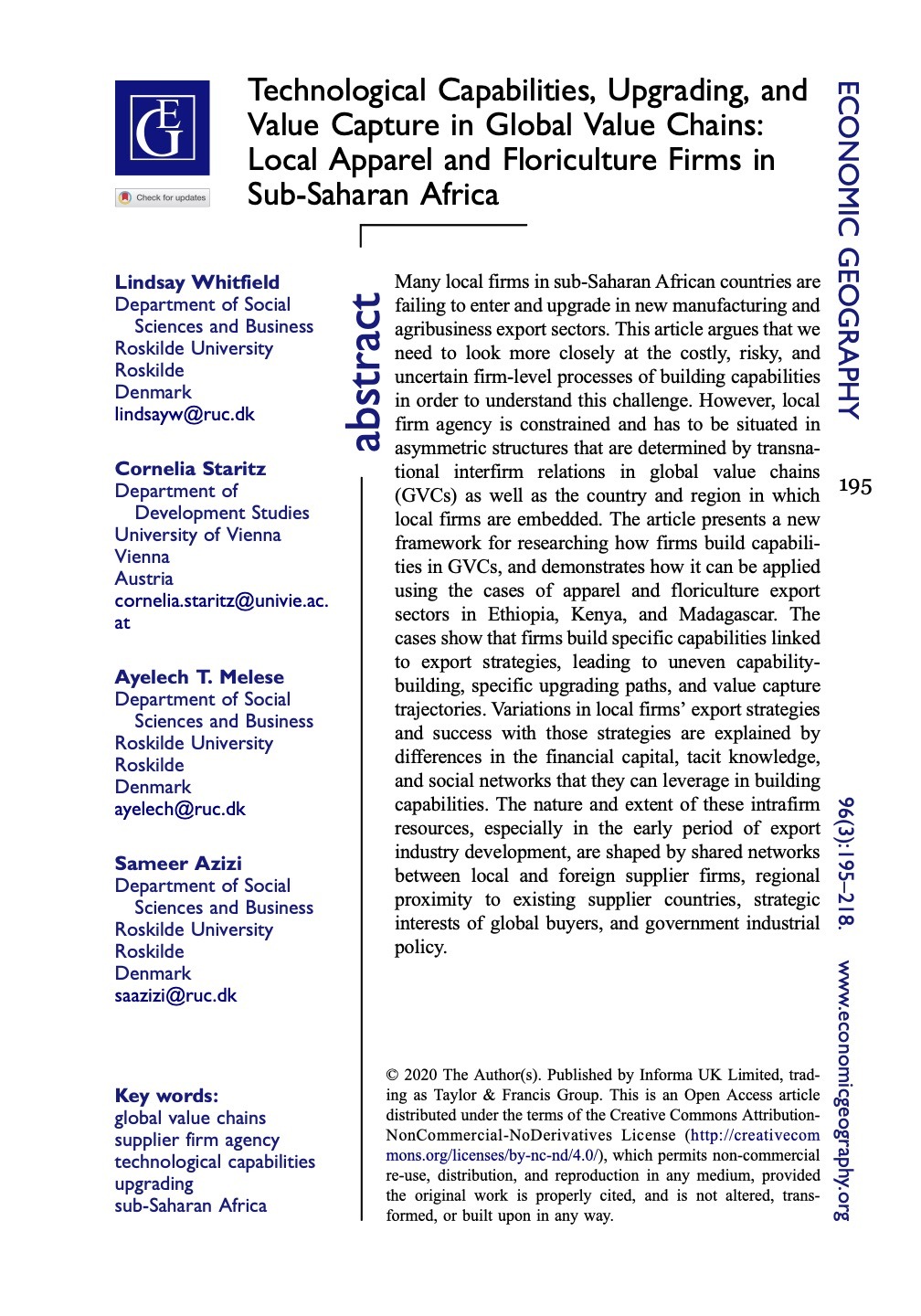︎

Lindsay Whitfield
Copenhagen Business School
Lindsay Whitfield is Professor of Business and Development at the Department of Management, Society and Communication, Copenhagen Business School, Denmark. She is also Co-Director at the Centre for Business and Development Studies. She holds a B.A. in Politics and a B.A. in Economics from the University of North Carolina, Chapel Hill in the USA, a M.Phil. in Development Studies and a D.Phil. in Politics from the University of Oxford, UK. The main research area of Lindsay Whitfield is comparative political economy of development, and her regional focus is on Sub-Saharan Africa.
MORE ABOUT LINDSAY WHITFIELD >Apr 23, 2022
Tobias Wuttke, Lindsay Whitefield
Monthly Seminar Series | Industrialization in the era of GVCs – A case study of the South African automotive industry
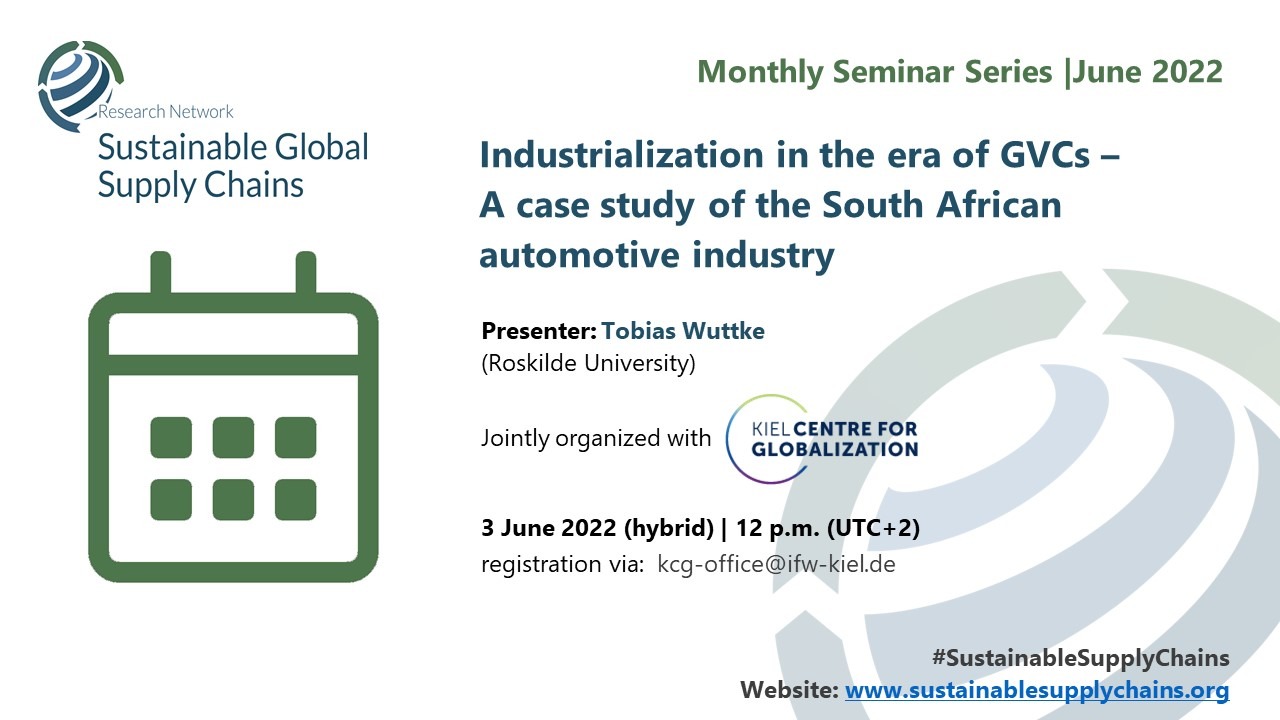
Apr 5, 2022
Sustainable Global Supply Chains Report 2022
Global supply chains affect the economy, the environment and social welfare in many ways. Worldwide, economies are experiencing global supply shortages today, affecting key industries such as automotive and consumer electronics as well as vaccine and medical supplies industries. These preoccupy poli...

Apr 1, 2021
Lindsay Whitfield and Tilman Altenburg
Automation versus relocation in clothing global value chains: Will investments shift from China to Africa at a big scale?

Jan 1, 2020
Lindsay Whitfield, Cornelia Staritz, Mike Morris
Global Value Chains, Industrial Policy and Economic Upgrading in Ethiopia’s Apparel Sector
This article examines whether low‐income countries can still benefit from participating in manufacturing global value chains (GVCs) in terms of broader industrial development in a global context of greater competition and higher requirements. It contends that developing internationally competitive...
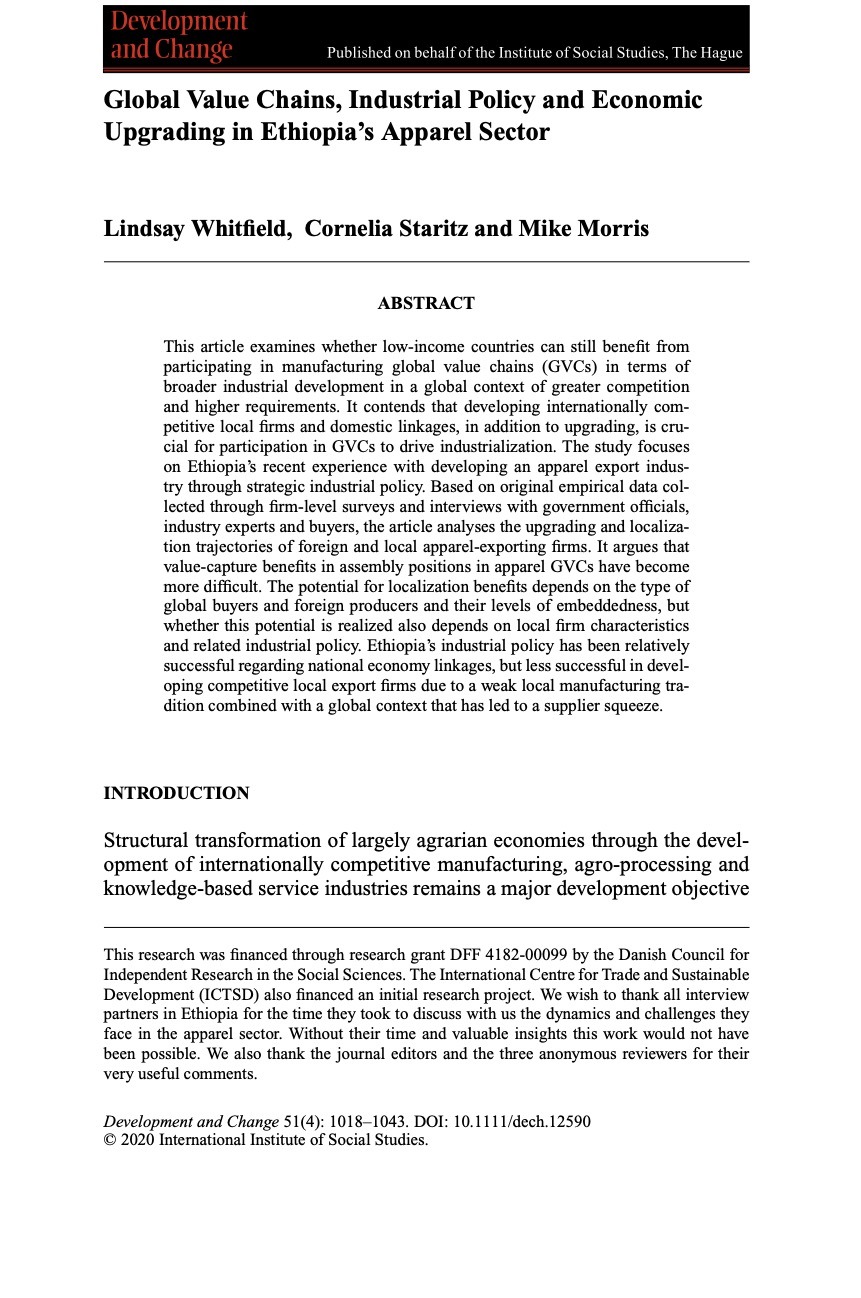
Jan 1, 2020
Lindsay Whitfield, Cornelia Staritz
The Learning Trap in Late Industrialisation: Local Firms and Capability Building in Ethiopia’s Apparel Export Industry
Local firms in new supplier countries face major challenges in entering manufacturing global value chains (GVCs) in the context of increased competition and requirements. To understand these challenges, we argue for the importance of looking more closely at local firm capability building, which is a...
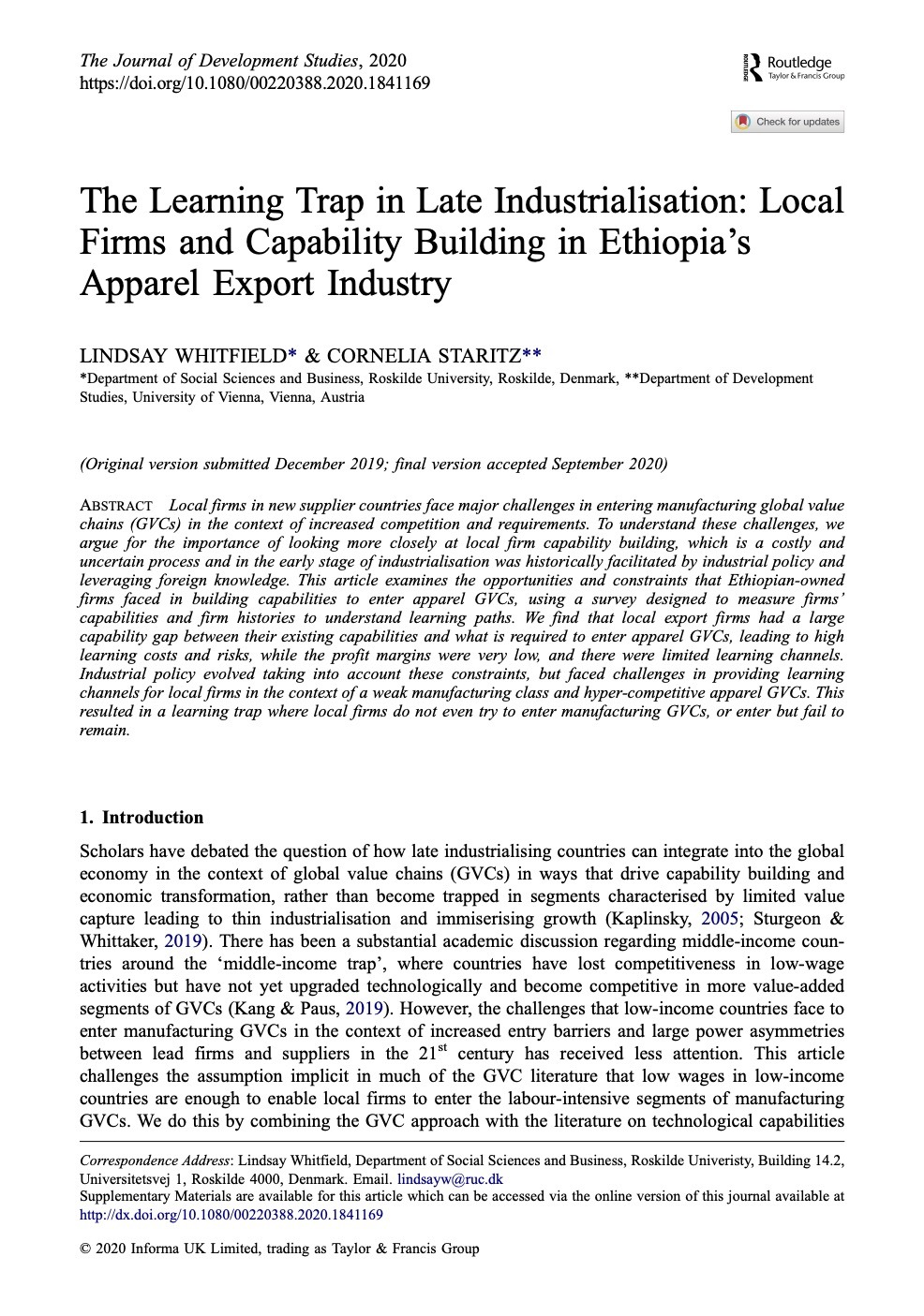
Jan 1, 2020
Altenburg Tilman, Xiao Chen, Wilfried Lütkenhorst, Cornelia Staritz, Lindsay Whitfield
Exporting out of China or out of Africa? Automation versus relocation in the global clothing industry
This Discussion Paper examines the opportunities that the rising industrial wages in China will bring for Africa. China has been the industrial workbench of the global economy for decades. However, its competitive advantages are waning, particularly for labour-intensive assembly activities in the cl...
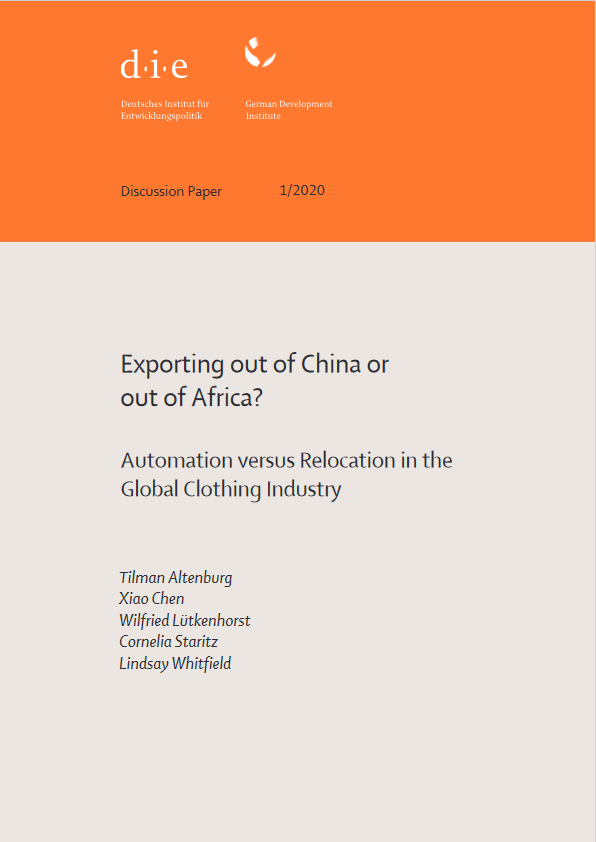
Jan 1, 2020
Lindsay Whitfield, Cornelia Staritz, Ayelech T. Melese, Sameer Azizi
Technological Capabilities, Upgrading, and Value Capture in Global Value Chains: Local Apparel and Floriculture Firms in Sub-Saharan Africa
Many local firms in sub-Saharan African countries are failing to enter and upgrade in new manufacturing and agribusiness export sectors. This article argues that we need to look more closely at the costly, risky, and uncertain firm-level processes of building capabilities in order to understand this...
